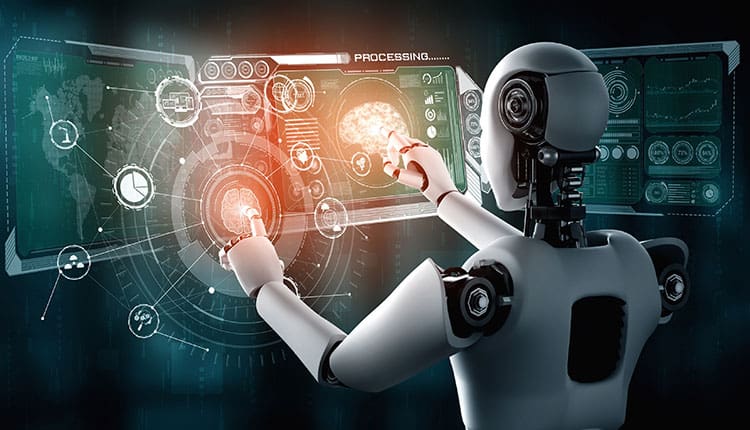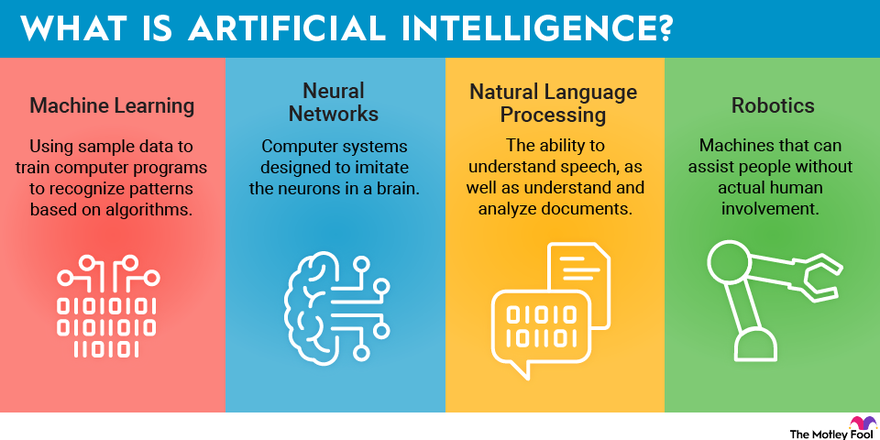
The potential of AI innovation has actually been percolating in the background for many years. But when ChatGPT, the AI chatbot, started getting headings in early 2023, it put generative AI in the spotlight. This guide is your go-to manual for generative AI, covering its advantages, limitations, use cases, potential customers and far more.

What is OpenAI?

- Share this product with your network:
-
-
-
-
-
-.
-.
-.
-
- Cameron Hashemi-Pour, Former Site Editor
OpenAI is a private lab that aims to establish and direct synthetic intelligence (AI) in manner ins which benefit humanity as a whole. The business was established by Elon Musk, Sam Altman and others in 2015 and is headquartered in San Francisco.
OpenAI was produced in part because of its creators' existential issues about the potential for catastrophe resulting from negligence and abuse of general-purpose AI. The business has a long-term concentrate on essential advances in AI and its abilities. The founders of the business and other financiers started the business with a $1 billion endowment. In February 2018, Elon Musk left the business due to a possible dispute of interest with his work at Tesla, the vehicle and clean energy company influenced by Nikola Tesla.
The stated intent of the business-- to pursue safe synthetic general intelligence (AGI) for the benefit of mankind-- is reflected in its objective to freely work together with other research companies and individuals. Research and patents made by the company are planned to remain open up to the general public other than in cases where they might negatively impact security.
Timeline and history of OpenAI
OpenAI was originally concentrated on developing AI and artificial intelligence tools for video games and other recreational functions. Less than a year after its official starting on Dec. 11, 2015, it released its very first AI offering: an open source toolkit for establishing reinforcement knowing (RI) algorithms called OpenAI Gym. Over the next 2 years, OpenAI focused on more general AI advancement and AI research study.
This article is part of
What is Gen AI? Generative AI explained
- Which also includes:.
8 top generative AI tool classifications for 2025.
Will AI change jobs? 17 job types that may be affected.
25 of the very best big language designs in 2025
In 2018, OpenAI published a report to explain to the world what a Generative Pre-trained Transformer (GPT) is. A GPT is a neural network, or photorum.eclat-mauve.fr a maker learning model, produced to function like a human brain and trained on input, such as big information sets, to produce outputs-- i.e., answers to users' questions.
In March 2019, OpenAI shifted from not-for-profit to capped-profit status and ended up being officially called OpenAI LP, managed by parent business OpenAI Inc. Almost 2 years later, in January 2021, OpenAI introduced Dall-E, a generative AI model that evaluates natural language text from human users and then generates images based upon what is explained in the text.
Perhaps the company's best-known item is ChatGPT, released in November 2022 and forum.batman.gainedge.org heralded as the world's most advanced chatbot for its ability to offer answers to users on an apparently unlimited range of topics. Its advantages and disadvantages, along with its uses in different markets, are still being debated.

Elon Musk no longer serves on the board of the business, and co-founder Sam Altman worked as the company's CEO up until November 2023 along with president and chairman Greg Brockman, formerly the CTO of monetary services and SaaS business Stripe; and primary researcher Ilya Sutskever, formerly of Google.
In November 2023, Altman was fired from his position by the board of directors, mentioning that Altman was not honest in his communications to the board. Soon after, Brockman left the business. Both were worked with by Microsoft 3 days after leaving the company.
Emmet Shear, co-founder of Twitch, setiathome.berkeley.edu was hired as the interim CEO at OpenAI after Altman's departure. Following Altman's firing, roughly 500 of OpenAI's staff members said they would stop if the board of directors didn't step down. After just 5 days, Altman and Brockman were re-hired in their initial functions at OpenAI with a brand-new board of directors.

Notable tasks and releases
OpenAI has actually been considered advanced for its notable item offerings, surgiteams.com that include the following:
GPT-3. This effective big language design (LLM) functions as the basis for other OpenAI items. It evaluates human-generated text to learn to create comparable text by itself.
GPT-4. Released in March 2023, GPT-4 delivers multimodal AI functionality, where it can examine both text and images.
GPT-4o. Introduced in May 2024, GPT-4o improved multimodal capability to recognize images, text and audio. GPT-4o is more conversational than other models. GPT-4o will acknowledge the user's screens and photos and ask questions about them.
OpenAI o1. Released in September 2024, OpenAI o1 is an LLM with enhanced reasoning performance. Instead of supplying an action as quickly as possible, o1 "believes" through the ideal method to solve a problem for more accurate actions.
OpenAI o3. Announced in December 2024, this o1 successor design has 2 versions-- o3 and o3-mini. These designs utilize what OpenAI calls a "personal chain of thought" in support learning, which teaches the o3 design to pause and analyze internal dialogue utilizing simulated reasoning before producing replies. OpenAI strategies to launch o3-mini to the general public in January 2025.
ChatGPT Search. This AI search engine is currently developed into ChatGPT for Plus and Team users. The search feature supplies current info from the web and permits ChatGPT to take on other online search engine. It was released in October 2024.
Dall-E and Dall-E 2. These generative AI platforms can examine text-based descriptions of images that users want them to produce and then produce those images exactly as described.
Clip. Clip is a neural network that synthesizes visuals and the text referring to them to anticipate the finest possible captions that the majority of accurately explain those visuals. Because of its capability to gain from more than one type of information-- both images and text-- it can be classified as multimodal AI.
ChatGPT. ChatGPT is presently the most innovative AI chatbot developed for producing humanlike text and producing answers to users' questions. Having been trained on big information sets, it can produce answers and responses the way a human would. Since its development, updates to this tool have actually permitted it to communicate with users through voice conversation and images.
Codex. Codex was trained on billions of lines of code in various shows languages to assist software application developers streamline coding procedures. It's established on GPT-3 technology, but rather of producing text, it creates code.
Whisper. Whisper is labeled as an automated speech recognition (ASR) tool. It has been trained on a multitude of audio data in order to recognize, transcribe and translate speech in about 100 various languages, consisting of technical language and various accents.
ChatGPT Enterprise. Although this is similar to the customer version of ChatGPT, the business variation lets users construct the training of their model. This edition also reviews the recent incremental changes made to ChatGPT.
Custom GPTs. GPTs are customized variations of ChatGPT that users can customize to particular use cases without any code. Verified GPT contractors can share custom-made GPTs in the GPT store and make money doing so.
OpenAI and Microsoft
At the start of 2023, Microsoft openly dedicated to a multibillion-dollar investment in OpenAI, but its interest in the business is absolutely nothing new. In July 2019, OpenAI participated in a multiyear collaboration with Microsoft in which Microsoft's cloud platform, Azure, has actually been boosted by AI-based computing products.
Microsoft's newest financial investment in OpenAI encompasses Bing, its online search engine. The business is using the same innovation developed for ChatGPT to produce an AI-infused version of Bing. Concurrently, AI-based features have actually also been included to Microsoft's Edge internet browser, and ChatGPT functionality is being contributed to Microsoft 365 items such as Outlook and Teams.
Criticisms of OpenAI
Despite all these rapid developments, OpenAI has not been immune to criticism, both in the world of tech and beyond. The business's shift from "not-for-profit" to "capped revenue" status in 2019 fueled criticism that its dedication to dealing with others on building "safe and beneficial" basic expert system had become a profit-driven "AI arms race" to produce the most advanced AI technology on the marketplace. Simultaneously, others have actually expressed concerns about OpenAI's growing lack of openness into how its groundbreaking items are being developed, provided its dedication to establishing open source software application.
More recently, the launching of ChatGPT in late 2022 has actually entered a reasonable offer of criticism together with the prevalent appreciation for its innovative capabilities. The innovation has actually been accused of producing "hallucinations" or other factually incorrect responses that are seemingly intelligent and well written, yet do not hold up under analysis. While this is possibly the most infamous disadvantage of the platform, others include its potential to plagiarize from other sources in addition to its restrictions in producing responses on the most up-to-date news. The data set it was trained on was from 2021, so the content it creates might injustice those who require information on current events. OpenAI upgraded ChatGPT Plus in November 2023 to consist of information as much as April of that year.
OpenAI's chatbots are among numerous that faced safety issues early in 2023. Aside from the assistive abilities of these resources, researchers also identified harmful material in their responses. Examples of these include information on how to build a bomb, in addition to assistance on how to perform identity theft and steal from a charity.
International skepticism surrounding AI likewise continues to emerge. The French and Italian governments, for example, provided demands and assessments for OpenAI. Meanwhile, the U.S. White House asked for further info associated to the risks related to AI.
Lawsuits surrounding copyright with OpenAI have also turned up. In June, creators dealt with examination amidst a charge from Joseph Saveri Law Practice. Made on behalf of five book authors, this allegation showed ChatGPT and its underlying LLMs-- GPT-3.5 and GPT 4-- contained copyrighted products. Specifically, it accused these sources of using the authors' copyrighted works for summaries to train the LLMs. This took place without permission from the authors.
The New york city Times likewise sued OpenAI and Microsoft in December 2023 for copyright infringement, accusing them of illegally copying short articles to train LLMs and produce AI products that take on The New york city Times. The paper was the first major wire service to sue OpenAI and Microsoft for utilizing their publications to train AI systems.
Among issues, actions to improve the system often occur. In response to the suspicion surrounding ChatGPT, OpenAI introduced ChatGPT Enterprise in August. With this new version, organizations can have a better hold on design training and the information that exists within models. However, there remains an absence of clearness surrounding the training data used by the design. As such, enterprises have actually shared issues about the design using copyrighted material for training.
OpenAI has actually also faced criticism surrounding lack of variety on its board of directors. Critics noted the board's lack of representation isn't in line with the company's mission to "benefit all of mankind." Following the shooting and rehiring of Sam Altman in November 2023, OpenAI ousted its only 2 female board members and reinstated a board comprised exclusively white men. Lawmakers in Washington likewise recommended that OpenAI diversify its board following the restructuring.
The future of OpenAI
OpenAI has not offered substantial public commentary on future plans, but based upon current investments, democratization of AI is a clear goal of the Microsoft-OpenAI partnership, as nontechnical specialists ought to soon have more AI tools at their disposal that do not need AI know-how.
Microsoft has also done something about it that seem to suggest the anticipated development of OpenAI and similar resources. In 2023, the company announced a financial investment of more than $13 billion in OpenAI. With the objective of sustaining using AI for various purposes, the investment gained a big quantity of support following its contrast to the internet transformation.
In the 1990s, Bill Gates launched a memo that explained the web as a "tidal wave" that would have a large influence on Microsoft. While referencing this memo, Microsoft CEO Satya Nadella recently noted the similarities in between internet and AI growth. Furthermore, Microsoft is aiming to use these tools to support innovation.
In parallel with its anticipated development, OpenAI hosted its very first designer conference in November 2023. At the occasion, OpenAI revealed GPT-4 Turbo, a language design with a significantly bigger context window than its predecessors, a cheaper API prices model and a later training data cut. OpenAI also debuted adjustable GPTs, a "Copyright Shield" that will secure consumers from legal action, and GPT store where users can monetize and gain access to custom-made GPTs.
In December 2023, OpenAI struck a handle media company Axel Springer to use its news material in OpenAI's items. This lets ChatGPT give news summaries from Axel Springer's outlets, which include Politico and Business Insider. The offer reveals OpenAI's intent to check out opportunities in AI-powered journalism.
Currently, OpenAI is in early talks with the California chief law officer's workplace to alter is business structure from a capped-profit service to a for-profit business. OpenAI began as a nonprofit AI research laboratory in 2015.
%20Is%20Used%20In%20Biometrics.jpg)
Continue Reading About What is OpenAI?
What is generative AI? Everything you need to know
Bard vs. ChatGPT: What's the distinction?



